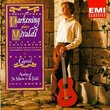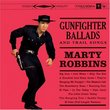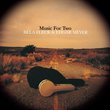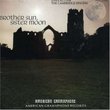| All Artists: Lou Harrison, Naoto Otomo, Robert G. Hughes, New Japan Philharmonic Orchestra, Aleck Karis, Keith Jarrett Title: Harrison: Piano Concerto/Suite For Violin, Piano And Small Orchestra Members Wishing: 1 Total Copies: 0 Label: New World Records Release Date: 6/18/1996 Genres: Jazz, Classical Styles: Chamber Music, Forms & Genres, Concertos, Historical Periods, Classical (c.1770-1830), Instruments, Keyboard Number of Discs: 1 SwapaCD Credits: 1 UPCs: 093228036623, 093228036623, 036244207523 |
Search - Lou Harrison, Naoto Otomo, Robert G. Hughes :: Harrison: Piano Concerto/Suite For Violin, Piano And Small Orchestra
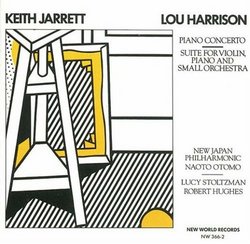 | Lou Harrison, Naoto Otomo, Robert G. Hughes Harrison: Piano Concerto/Suite For Violin, Piano And Small Orchestra Genres: Jazz, Classical
|
Larger Image |
CD DetailsSimilarly Requested CDs
|
CD ReviewsAnother Harrison Masterwork Christopher Forbes | Brooklyn,, NY | 07/29/2002 (5 out of 5 stars) "I am always surprised at the lack of interest shown to the sublime music of Lou Harrison by the average music going public. Surely people who take Arvo Part and Steve Reich to their hearts can find a similar warmth for this marvelous composer. Harrison is a master composer, both intellectually stimulating and emotionally beautiful. And this CD is a marvelous place to start. The Piano concerto is a marvelous piece. Tightly constructed, with brilliant viruoso passages, it walks the tightrope between East and West. You can hear echos of the Beethoven 4th, along with Balinese Gamelan and medieval techniques, overridden by Harrison's haunting melodic gift and a unique sense of instrumental color. The work is written for piano in just intonation, but Harrison uses the tuning system so well that the result isn't stark, like La Monte Young, but rather harmonious and sweet. This is a major repertoire piece and Keith Jarrett plays it beautifully. The other work on the CD comes from another branch of Harrison's work, that for western instruments and Gamelan. The idea of mixing eastern and western instruments can turn gimickly, but not in the hands of Harrison. This is a beautiful piece, neither a "composed" imitation Balinese piece, nor a purely western piece, it achieves a true synthesis of the two. I can't imagine that anyone interested in music wouldn't find this CD immediately enchanting. I give this my highest recommendation." Orient/Occident Gerard Dionne | 08/22/2006 (5 out of 5 stars) "The Kimber Number Two tuning of the Piano Concerto is one those musical devices more felt than heard. Just intonation as utilized by, say, Harry Partch is so non-Western it strikes many ears as extra-terrestrial. In Kimberger, the 4ths and 5ths in the black keys are perfectly consonant. If you're reading this without benefit of hearing the music, it probably seems as if obscurity is an end in itself. Quite the contrary: Lou was all about simplicity. And strange to tell, this lesson came from none other than (ta-da) Schoenberg, who told him his model should be Mozart. Think Wolfy and Gamelan as you hear this music; it will fall together for you. Keith Jarrett, as usual, is a virtuoso for all seasons. The Stampede (reference Estampie, a vigorous Medieval dance) is crisp and powerful. The largo is achingly beautiful. Lou once said that among the differences between East and West Coast musicians was the lack of fear West Coasters have with a beautiful sound. The only quibble I have with this recording is the somewhat distant, thin sound of the ensemble. I think it keeps us at arm's length; I would have welcomed the instruments being more closely miked." An all-time favorite Louis | San Francisco, US, Canada | 08/26/2007 (5 out of 5 stars) "I've listened to this recording many times, and never tire of it. The subtly retuned piano sounds sweeter every time I hear it. Alternately grand and intimate, lyrical and dissonant (mostly lyrical), this is a very special work.
Another reviewer here commented that the ensemble sound is "somewhat distant." I agree. The other available recording of the work, by Joanna MacGregor with the Sydney Symphony, corrects this. Harrison fans will want to have both disks. But here with Keith Jarrett, who commissioned the work, is the place to start. LJ" |

 Track Listings (10) - Disc #1
Track Listings (10) - Disc #1